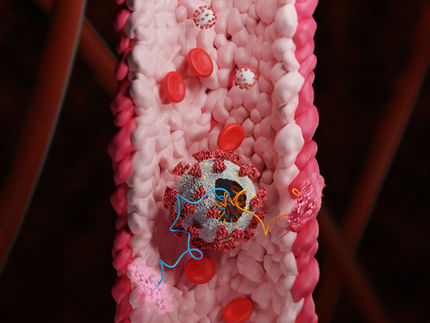New heart drugs don’t mean old ones should be discarded, UF researchers say
Advertisement
In performing procedures to open narrowed coronary arteries, cardiologists use powerful drugs to prevent clotting and make the blood thinner — but not so thin that it causes major bleeding. But one of the old anti-clotting standards has fallen out of favor in recent years amid concerns over increased risk of bleeding, coupled with the advent of newer drugs and techniques.
Now University of Florida cardiologists have found that the old therapy, a class of compounds called GPIs, still helps patients by lowering the risk of nonfatal heart attack without elevating the risk of major bleeding. They recommend continued use of the drugs despite an elevated risk of minor bleeding. The findings and recommendations are published in the Journal of the American College of Cardiology.
“The big benefit is reduction in heart attacks after the procedure,” said first author David Winchester, M.D., a cardiologist in the UF College of Medicine. “And because there is no increased risk of major bleeding, we think that the increase in minor bleeding is an acceptable trade-off.”
Patients who have angina, a condition in which blood vessel blockages cause chest pain and difficulty breathing or performing daily activities, often elect to have procedures to improve blood flow to the heart, rather than use medications. The cardiologist puts wires and catheters into the arteries and then deploys stents to open up the blockages. The risks of that procedure include both blood clotting and bleeding, so a cocktail including aspirin, a blood thinner known as heparin and the traditionally administered anti-clotting GPIs is generally given. With newer drugs on the market, however, GPI use has fallen off.
To see whether that drop-off is warranted, the UF team, led by Anthony A. Bavry, M.D., M.P.H., pooled and re-analyzed published data on more than 10,000 patients from 22 different clinical trials that investigated the use of GPIs during the elective artery-opening procedures, also known as coronary artery angioplasty.
They found that use of the anti-clotting GPIs reduced the risk of nonfatal heart attacks by more than 30 percent, compared with controls. In addition, there was no increase in the risk of major bleeding. The risk of minor bleeding did rise, however, by more than 70 percent.
Despite the plummeting use of GPIs, formally known as Glycoprotein IIb/IIIa Inhibitors, the results indicate that the drugs still play an important role during elective heart procedures, the researchers said.
“The drop-off in use occurred without any data supporting it,” said Deepak L. Bhatt, M.D., M.P.H., an associate professor of medicine at Harvard Medical School and chief of cardiology at the VA Boston Healthcare System. “Sometimes changes occur in clinical practice that seem to make sense as they are happening, but are premature and not grounded in data.”
Bhatt was not involved in the UF study, and wrote a commentary on the UF work in which he cautioned against discarding older drugs simply because they are older.
Bhatt points, however, to other studies showing that if one of the more modern anti-clotting agents called bivalirudin is used instead of heparin, then the older GPIs can be omitted.
Depending on the number of procedures that cardiologists do in a year, they might not see complicated patients, and so might wrongly conclude that stopping the use of GPIs is acceptable because they continue to get good outcomes, the researchers said. Bhatt compared it to wearing a seatbelt.
“It is indeed true that most of the time it doesn’t matter if you do it — except for the times when it does matter, which you can’t predict a priori,” Bhatt said. “It’s easy to underestimate the risk of rare complications; it’s just that when they happen their impact is so high that to prevent them you still want to take steps that may seem unnecessary.”


















































